Cultural Revolution: No desire to dwell on the past
- Published
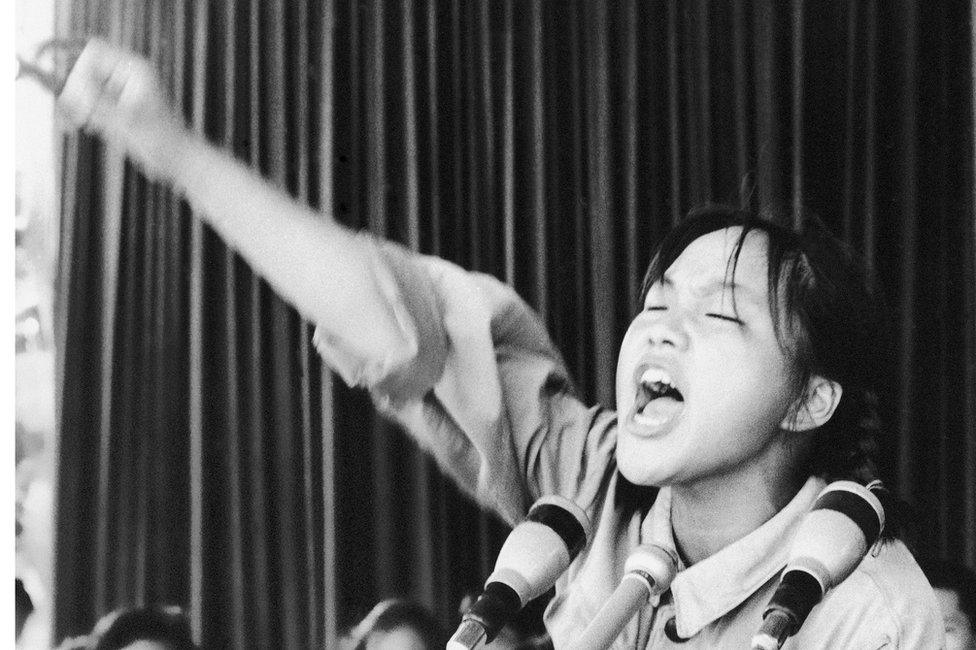
Supporters were encouraged to destroy "the four olds": old customs, old culture, old habits, and old ideas
Chinese people aged over 50 experienced the Cultural Revolution first hand.
If you were born in 1966, you were 10 when it finished.
If your parents were academics, artists, or government officials, you may have seen them dragged into the street by a mob of youths, tied up, humiliated and possibly beaten to death.
Some themselves were doing the bashing, burning and destroying of the "old culture". Others toiled away in the fields to learn from hard-working peasants the real way to think.
For a decade, nearly all university education was put on hold, institutions like hospitals could barely function, and chaos reigned, as Mao Zedong took back the reins of the Communist Party and tried to thrust the entire country into a heightened state of revolutionary awareness.
Death toll estimates vary but millions are thought to have died.
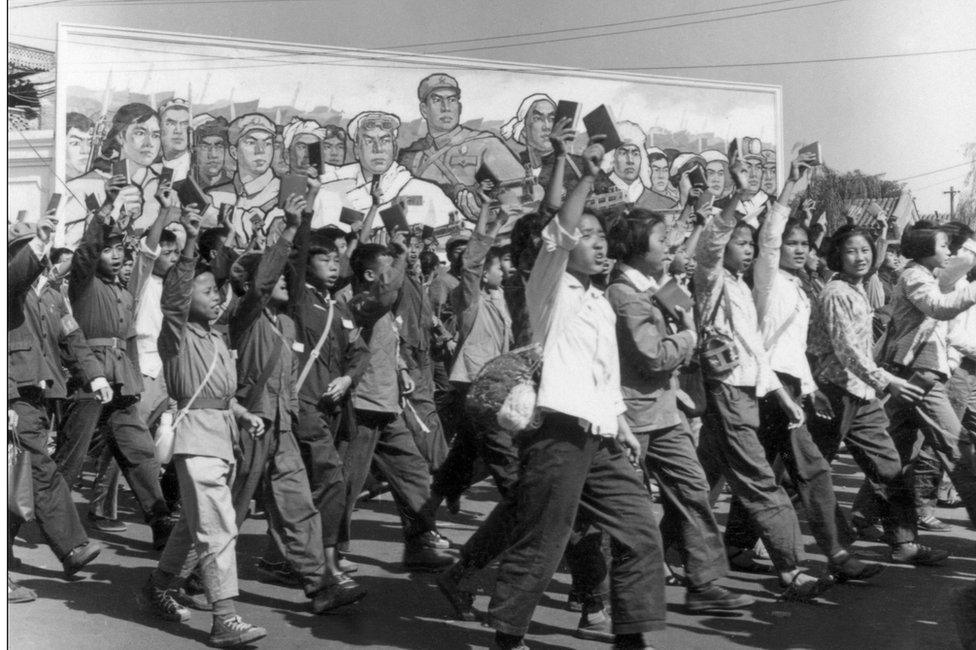
With the teacher-student relationship turned upside-down, it was also a chance for pupils to settle scores
So it does seem remarkable that on this, the 50th anniversary of such a massive upheaval, there would be almost no coverage of it at all in China.
Major state-run newspapers and television stations have had nothing to report.
Phoenix Television is a Communist Party-controlled outlet coming out of Hong Kong. It is sometimes more liberal than its mainland counterparts.
On this occasion, Phoenix prepared a special online feature about the Cultural Revolution anniversary, but the link has now been frozen.
Yet it is not a blanket censorship policy as with, say, discussion of the 1989 Tiananmen Square crackdown.
On China's Twitter-like Weibo, the Chinese words for "Cultural Revolution" have not been blocked.
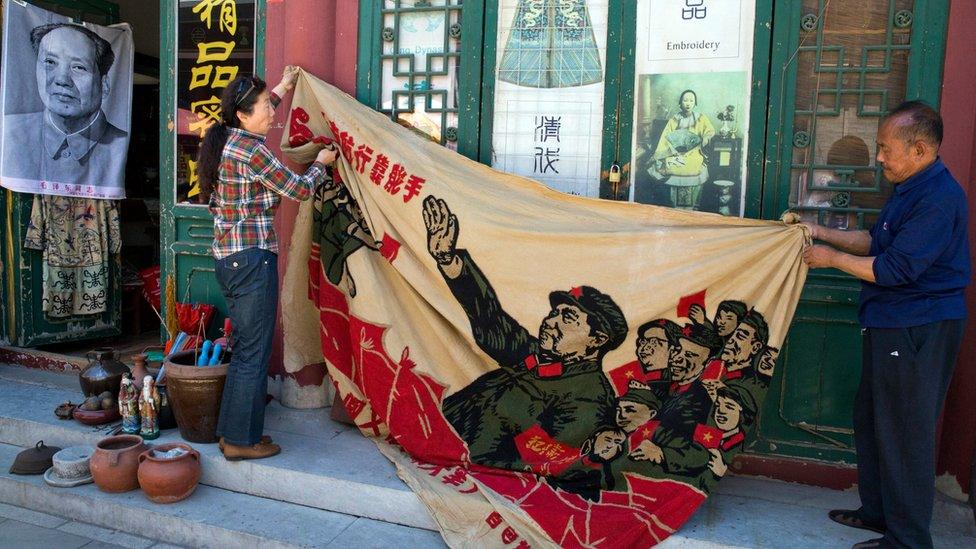
Vendors at a curio market in Beijing hang up a 1969 banner of the arch enemy of capitalism, to help sell trinkets on the anniversary of the Cultural Revolution
On the Sina News website, external there is no article, but they have posted a Communist Party document from 1981 that states that the Cultural Revolution was created by Chairman Mao Zedong and "caused the most serious setback and loss for the Party, the country and the people, since the founding of China".
The document also says that this political movement had nothing to do with Marxism, Leninism "nor the reality of Chinese society".
What is more, it added that after the death of Chairman Mao, the arrest of his widow Jiang Qing and the other members of the "Gang of Four", would "save the Party and the revolution from this crisis and help our country enter a new period".
Somebody at Sina News has worked out that it would look pretty bad for the censors to block an official Communist Party document.
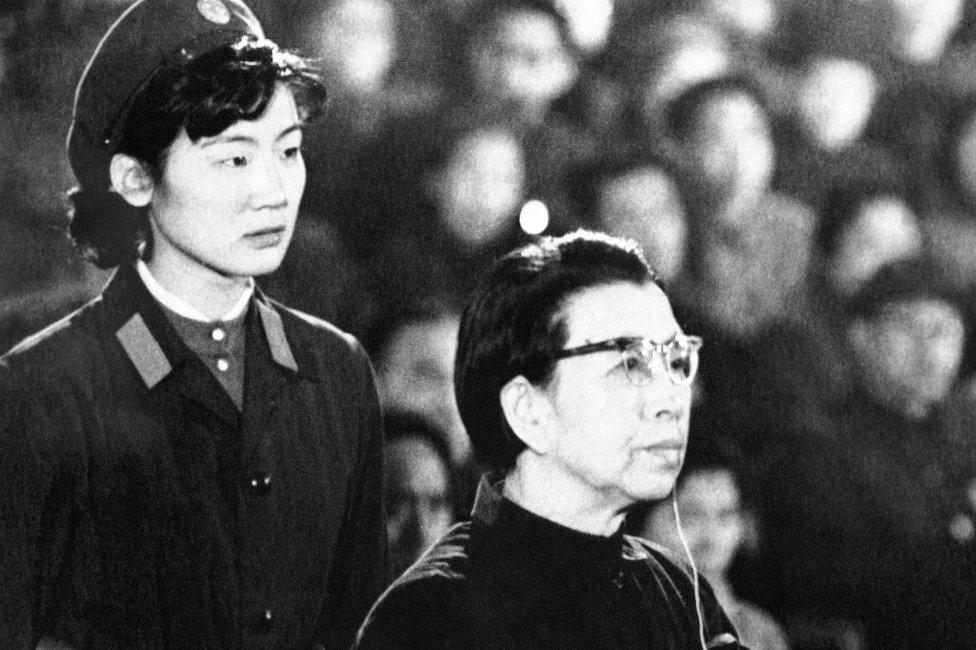
Later tried for her part in the chaos, Mao Zedong's widow Jiang Qing claimed she was being scapegoated for her husband's orders
The firebrand pro-Party newspaper The Global Times has not said much, but it does have an online page featuring a single photo, external of a woman eating noodles in front of a portrait of the Mao Zedong.
The headline reads: Anniversary of tragedy.
Under the photo are these lines: "A vendor eats noodles next to a poster of late Chinese leader Mao Zedong, at a market in Beijing on Sunday.
"Monday marks the 50th anniversary of the beginning of the Cultural Revolution (1966-76), where memories of Mao remain divisive among different groups."
Global Times editor Hu Xijing posted this himself on Weibo: "The homes of my parents and grandma in Beijing were raided because they were categorised as 'landowners'.
"It was my scariest memory - when I was six, the Red Guards pushed my grandma to the ground and called her a 'landlady'.
"They slapped her and she cried. My grandma was then forced to leave Beijing. My father was her only child and my grandma's relatives were the only ones who could take care of him.
"From a very young age, I had to write down 'landowner' in every form I filled in. I felt very ashamed. The Cultural Revolution - a memory so hard to look back on!"
Yet many have responded on Weibo accusing the pro-Party editor of hypocrisy because his paper has hardly touched the issue.
One person wrote: "This is Stockholm Syndrome. This man has developed emotions for the people who have committed crimes against him and has even started helping them."
None of this subsequent discussion online has been taken down.
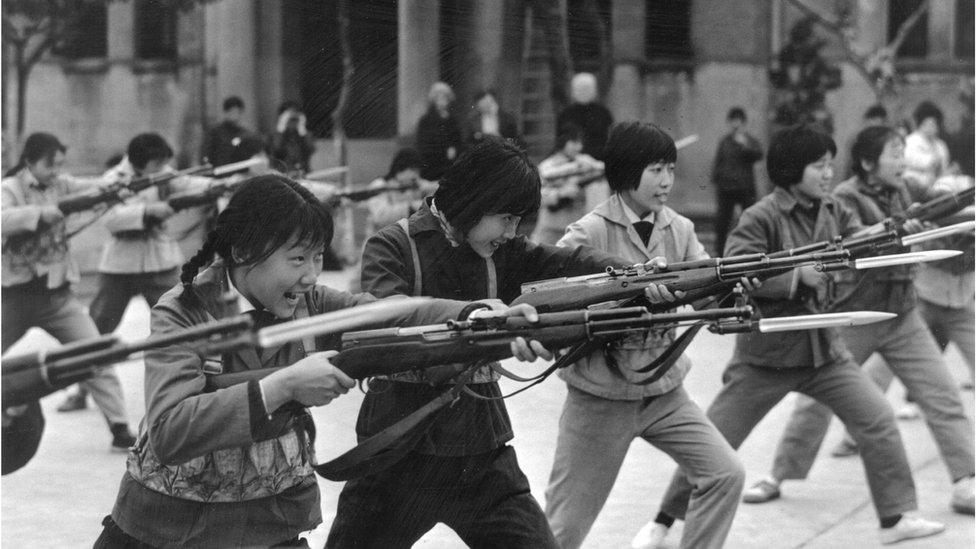
Many of those that died were killed in fighting when central government finally reasserted its authority
So why allow a certain amount of coverage rather than completely ban discussion?
It does allow officials to say they are not afraid of mentioning the Cultural Revolution.
Another factor is that so many people suffered through this period, including senior figures in today's leadership.
Even President Xi Jinping's father - one-time hero of the revolution, Xi Zhongxun - was labelled an enemy of the Party, publicly humiliated and jailed.
There are those here, even some in powerful positions, who think that there has never been an adequate accounting for these events. Few of the students who murdered their teachers have been brought to justice.
What is more, they believe that young Chinese people need to learn from the mistakes of the Cultural Revolution and that it should be spoken about publicly.
But the more prevalent attitude of the current administration seems to be: let this painful period pass, there is no need to dwell on what is bad, and what is now over.
- Published27 September 2011
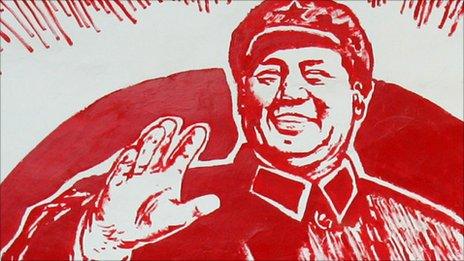
- Published15 May 2016
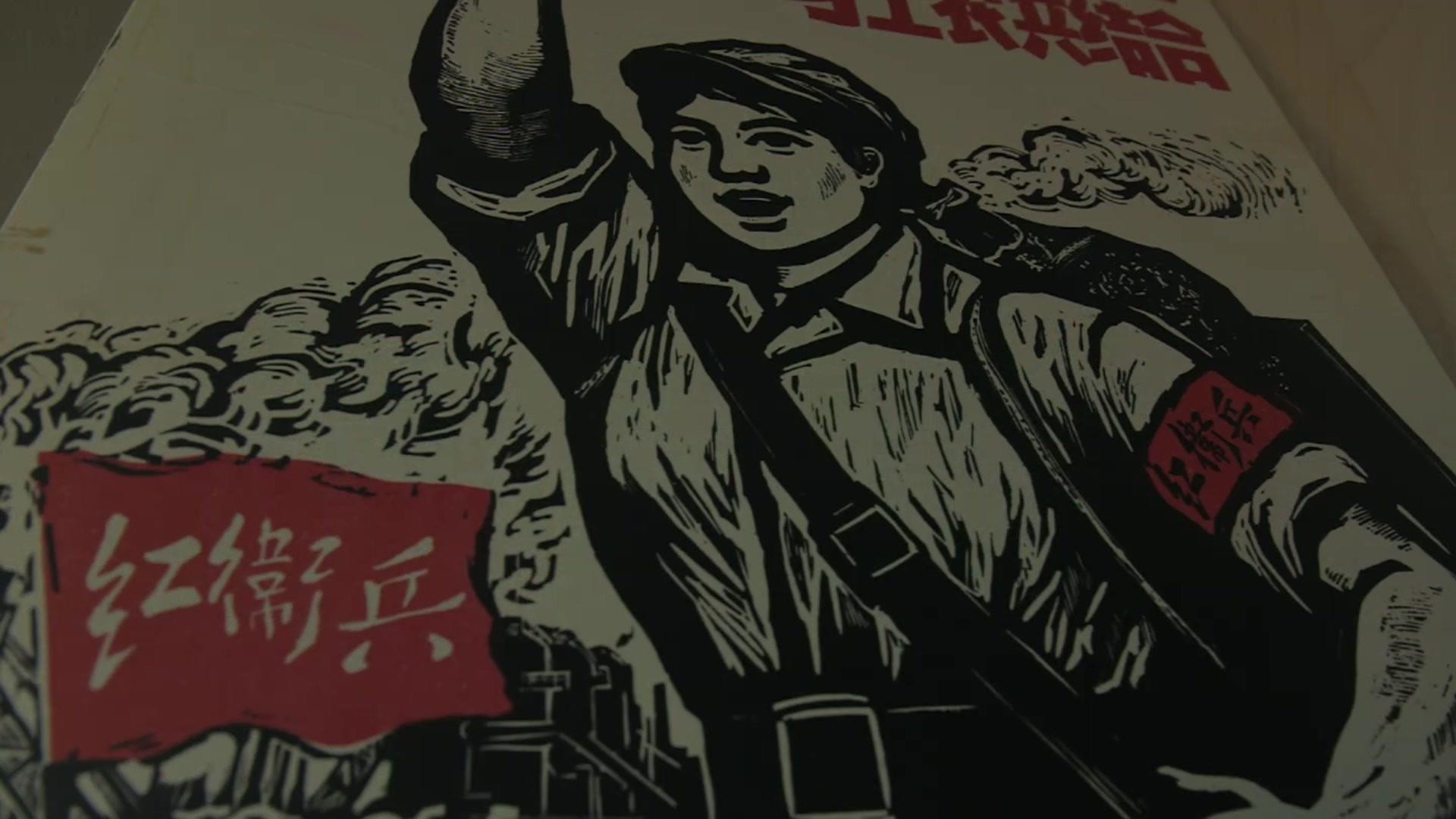
- Published16 May 2016
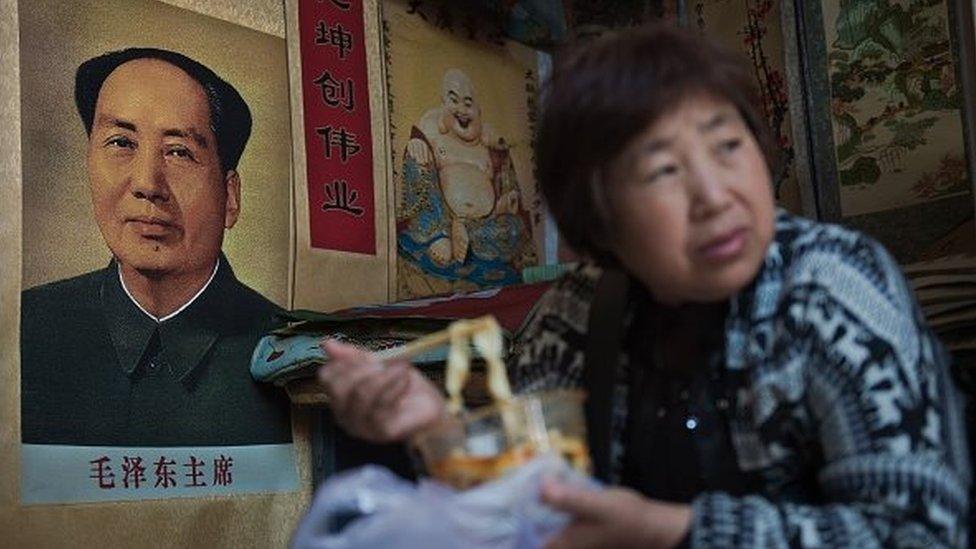
- Published15 May 2016
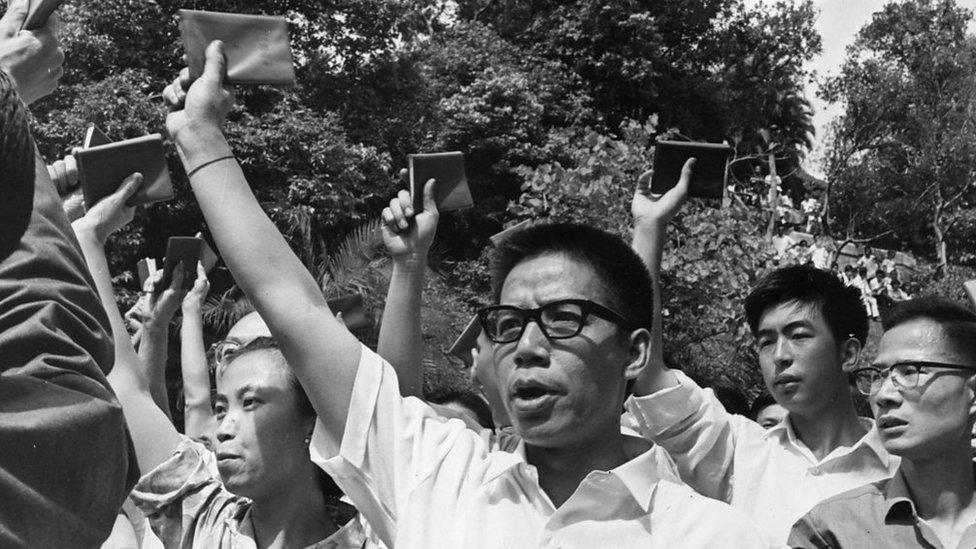
- Published16 May 2016